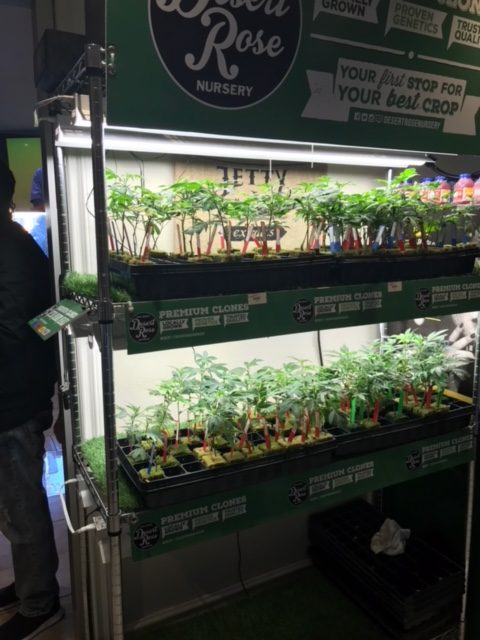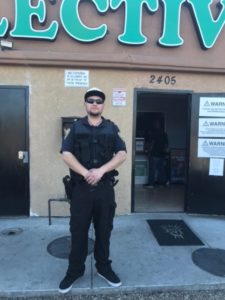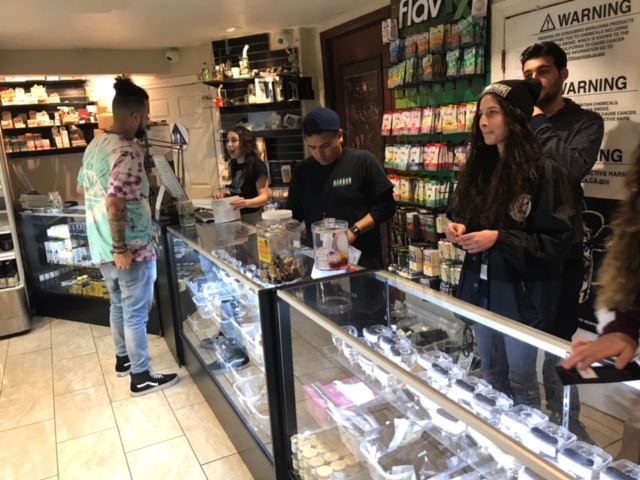
January 1 ushered in a new year and at least one major legal change in the state of California: the legalization of recreational marijuana. Despite the reportedly long lines at some stores in San Diego, the legal change passed quietly in Coronado, largely because the City Council recently instituted restrictions on the commercial distribution of marijuana within the city limits.
Proposition 64 allowed for the legal sale and taxation of recreational marijuana in California when it was favored by 57% of the voters in November of 2016. Coronadans also supported the proposition by just over 50%.
Despite the overall support of Proposition 64, the City Council voted unanimously on October 3 to restrict commercial distribution and access within the city limits of Coronado. The restrictions are largely consistent with the earlier restrictions on the commercial availability of medical marijuana in Coronado and included a prohibition on “the establishment and operation of all commercial marijuana activities including cultivation, processing, delivering and dispensary” services. One major distinction between the two, however, has to do with delivery. While delivery of marijuana is allowed for qualified medical users, commercial delivery is not allowed for recreational use.
When asked why the City Council chose to enact restrictions when a majority supported Prop 64, Mayor Bailey said: “While Coronado voters approved Prop 64 which allows for the personal use of marijuana, they also approved allowing our local government the ability to regulate commercial activity in a way that stays true to Coronado’s character. The regulations passed by the City Council are a reflection of what we believe our community wants.”
There are several very practical implications of Coronado’s restrictions. First, the city of Coronado will not receive any tax revenue on commercial marijuana that is consumed here. This could be significant – estimates for what the city of San Diego hopes to raise in tax revenue runs into the millions.
On the other hand, by not allowing commercial activity, the city will not run afoul of the continued federal prohibition on marijuana. This could be significant given that Attorney General Jeff Sessions has just announced the roll back of a federal policy of non-interference in state legalization of marijuana.
By state and city law at this point, those who wish to exercise their right to consume marijuana in Coronado may do so, but only in private, or in public places that do not currently prohibit tobacco consumption – for instance, the golf course. Additionally, citizens can also grow marijuana for their own use. It should be noted, however, that the legality of recreational marijuana only applies to those aged 21 or older.

Individuals who have opposed the legalization of marijuana (or its commercial availability in Coronado) have done so on various grounds, from the fear that it will attract a dangerous clientele or simply attract crime (since, at this point, it is a cash-driven business), to the concern that it is not consistent with the family-oriented values of Coronado. On the first of these, the state law anticipated those concerns and requires 24 hour armed guards at establishments that sell marijuana. On the second, state law would not allow a commercial operation near schools or day-care establishments and, of course, does not allow for underage sales either.

Nonetheless, at this point, recreational users will have to cross the bridge if they wish to legally purchase marijuana. And, establishments are not numerous – as of January 1, there were only 100 licensed to sell in the entire state. At those that were open on January 1, waits were reportedly quite long. The security guard at Harborside Collective, in Barrio Logan, said that waits were “about 45 minutes on January 1 and still around 20 minutes [on the 2nd].”
The issue of going across the bridge raises another lingering issue with legalization – driving impaired. Many police organizations had opposed Prop 64 on the grounds that it would increase car accidents, as has happened in Colorado, and that while driving impaired is not legal, they fear it might be difficult to detect since they have no equivalent tool to a breathalyzer for cannibas.




